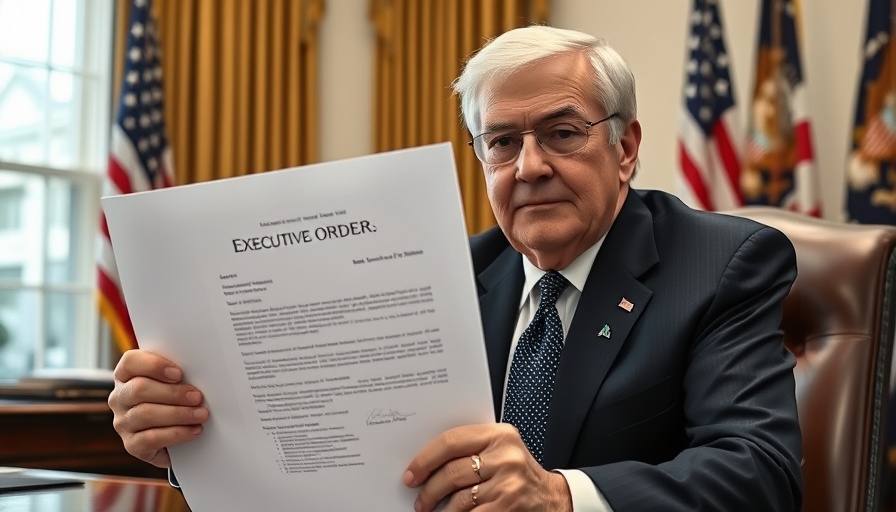
The Supreme Court's Ruling: A Notable Shift in Immigration Policy
The U.S. Supreme Court’s recent ruling limiting nationwide injunctions has reignited discussions surrounding birthright citizenship, a contentious issue that has long polarized American society. With the decision allowing state-level policies to potentially take effect, the placement of citizenship for children born on U.S. soil is at the forefront of political discourse once more. Recently stated by President Trump, this subject could shape the agenda for the upcoming elections as it addresses the heart of immigration debates.
Understanding Birthright Citizenship: A Historical Perspective
Birthright citizenship, established by the 14th Amendment, has been a cornerstone of American immigration law since its ratification in 1868. It grants citizenship to anyone born on U.S. soil, regardless of their parents' immigration status. However, advocates of changing this long-standing policy, including Trump, argue it incentivizes illegal immigration. As the Supreme Court's ruling unfolds, examining the historical context sheds light on how deeply rooted this legal principle is, and why altering it poses significant implications for millions.
The Current Climate: How This Ruling Affects American Society
This ruling not only has legal ramifications but also societal impacts. In areas with high immigrant populations, the potential enforcement of stricter laws could foster an atmosphere of fear and uncertainty among families. Many individuals born in the U.S. to undocumented parents would find themselves at risk of losing their citizenship status if changes to the law were implemented. Community leaders voice concerns that this may lead to increased discrimination and a growing divide between communities, intensifying the heated conversations on race and identity.
Political Implications: Impact on Future Elections and Policy Making
As the 2025 elections approach, the Supreme Court's ruling could serve as a rallying point for Trump's supporters, reigniting the immigration debate within his campaign platform. If Trump leverages this landmark decision to garner support, it will provide a fresh pulse to his narrative and further polarize the electorate. This raises questions about the future of immigration policy in America, specifically how candidates will approach the issue in the campaign trail.
Diverse Perspectives: Dissecting the Opposition
Opposition groups and some legal scholars argue that amending birthright citizenship could have adverse legal and ethical repercussions. The implications may reach beyond immigration; changing such fundamental laws could set a precedent that jeopardizes classifications of citizenship inherited from prior generations. This perspective encourages a more cautious consideration of how altering birthright rules might undo decades of settled law.
Looking Ahead: Predicting Trends and Future Controversies in Immigration
With the Supreme Court’s decision paving the way for state-level policies, future trends could reveal a patchwork of citizenship laws across the nation. States may pursue varying degrees of restrictive measures, leading to potentially inconsistent practices that threaten the uniformity of citizenship rights across America. Observers of immigration law anticipate significant legal challenges ahead as impacted individuals and advocacy groups seek relief from state policies believed to infringe upon their rights.
Taking Action: Engage in the Dialogue
As this issue continues to evolve, engaging thoughtfully in conversations about immigration reform is essential. Whether you're an advocate for change or a supporter of existing laws, understanding and participating in civic dialogue is crucial for shaping the future of citizenship laws in America. The recent ruling by the Supreme Court presents an opportunity for individuals to voice their opinions on this pressing issue and impact policy going forward.
 Add Element
Add Element  Add Row
Add Row 



 Add Row
Add Row  Add
Add 


Write A Comment